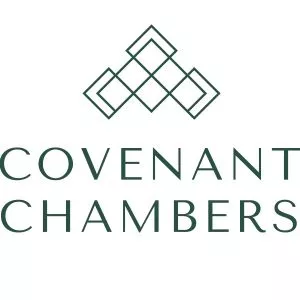Article by Budhi Tirto, IHF Partners,
Jakarta, Indonesia
in collaboration with Ronald JJ Wong, Covenant Chambers LLC,
Singapore
The recent dispute in Indah Puri Golf Resort in Batam, which was reported to have affected foreigners including Singaporeans, highlights a case of a lease which expired in 2018.1 When the resort was launched in 1993, the apartments were not available for foreign ownership. Although the law subsequently changed in 1996, 2015, and 20212; none of these changes affected the lease involving the resort.
This article discusses types of title available for foreign ownership in Indonesia and possible legal recourse in event of a dispute.
Types of title available for foreign ownership
Hak Milik title (similar to freehold in common law jurisdictions) may be owned by Indonesian citizens and certain Indonesian entities. However, it is not available for foreign ownership.
As for leaseholds, there are two main types of registered leaseholds: Hak Guna Bangunan - HGB (right-to-build title) and Hak Pakai dengan jangka waktu - Hak Pakai (term right-to-use title). The maximum initial term for these titles is 30 years, with an option for a 20-year extension and is renewable for another 30 years.
Foreign ownership is available for strata title apartments (satuan rumah susun) of a building situated on a land with either a Hak Pakai title or an HGB title. Owners of the apartment units are issued with certificates of title, which are separate from the Hak Pakai or HGB certificate of the common land on which the building is situated. The apartment units can be foreign owned if the building is situated in a special economic zone, a free trade and free port zone, an industrial zone, or another economic zone.
In the case of landed residential property (for example: villas), foreigners are allowed to own landed property that is under Hak Pakai title. Landed houses under HGB title are not available for foreign ownership.
A foreigner who owns a property must have a stay permit. Also, foreign ownership of residential property is granted with conditions on price threshold, total area of land, number of land pieces or apartment units, and designation as residential property.
Due to the onerous requirements for foreigners to own property in Indonesia, many residential properties are transacted as unregistered long-term rentals. Alternatively, some foreign buyers have the titles of the property registered under the names of Indonesian individuals. It should be noted that Indonesia does not recognise the concept of beneficial ownership, and nominee arrangements would therefore be unenforceable.3 Lastly, some foreign buyers might have been advised to hold the property through a foreign investment company (a PMA company). Such a structure would be impractical as it involves legal requirements for businesses and PMA companies (e.g.: minimum capital, minimum investment, negative/positive list, periodic reports, employment matters, social security/insurance, corporate taxation).
Legal Recourse
A seller of land/real estate/immovable property could be liable to a buyer for misrepresentation if it was contractually provided for. The seller would also usually be required to provide warranties and representations on the validity of legal title and ownership and that the land is not disputed or encumbered. If there is a breach of such warranties or representations, the buyer could pursue a claim for losses arising from such breach.
Conclusion
Prospective buyers of Indonesian property, whether foreigners or Indonesians, should enquire as to what type of land title the property is built on. Also, they should ascertain whether they will hold a certificate of title registered in the buyers' names or an unregistered tenancy contract. Rigorous due diligence and robust contractual documentation, including provisions on representations, warranties and dispute resolution, is highly recommended.
Footnotes
1. https://www.channelnewsasia.com/asia/indonesia-batam-indah-puri-repossession-eviction-lease-2398061
2. Government Regulation number 18 of 2021 repeals and supersedes Government Regulation number 40 of 1996 and Government Regulation number 103 of 2015.
3. https://www.smh.com.au/world/a-nightmare-in-paradise-20150709-gi8lrr.html
The content of this article is intended to provide a general guide to the subject matter. Specialist advice should be sought about your specific circumstances.

